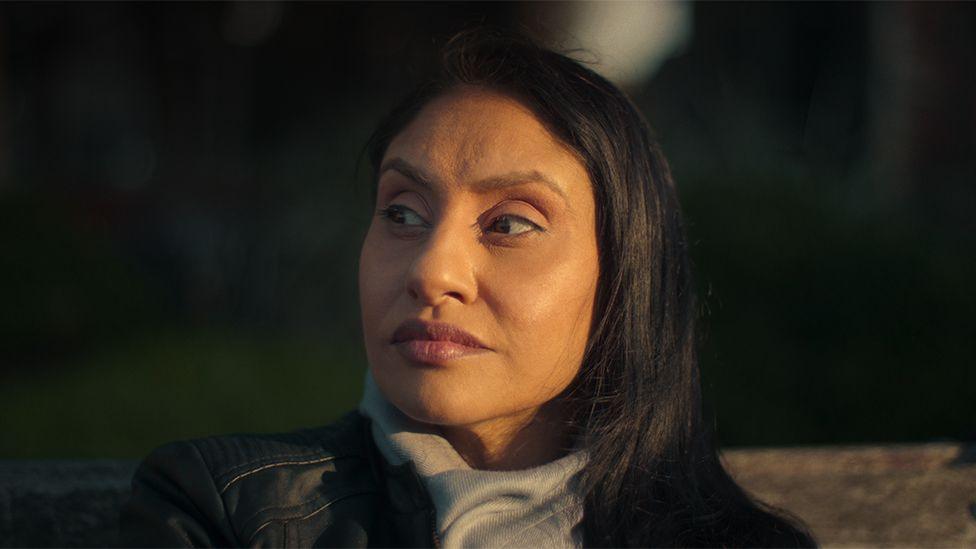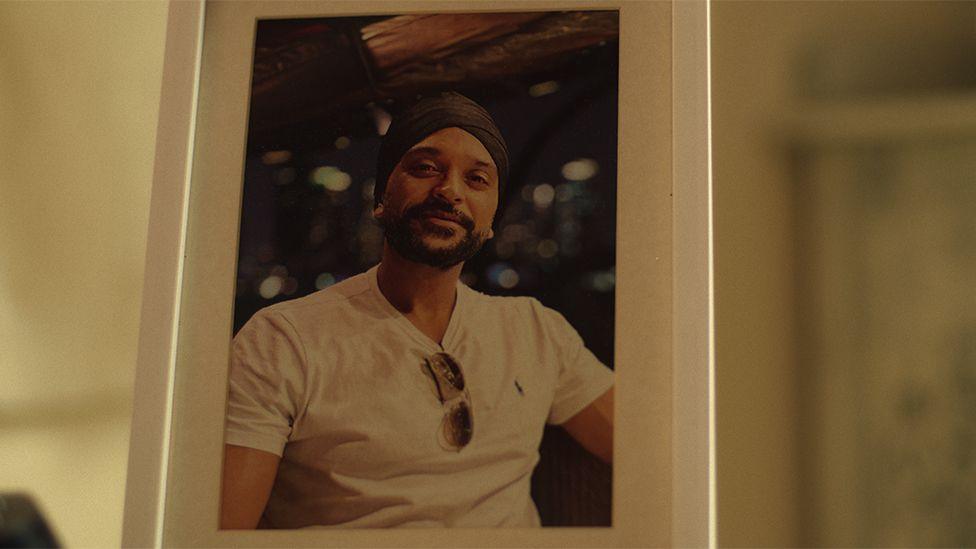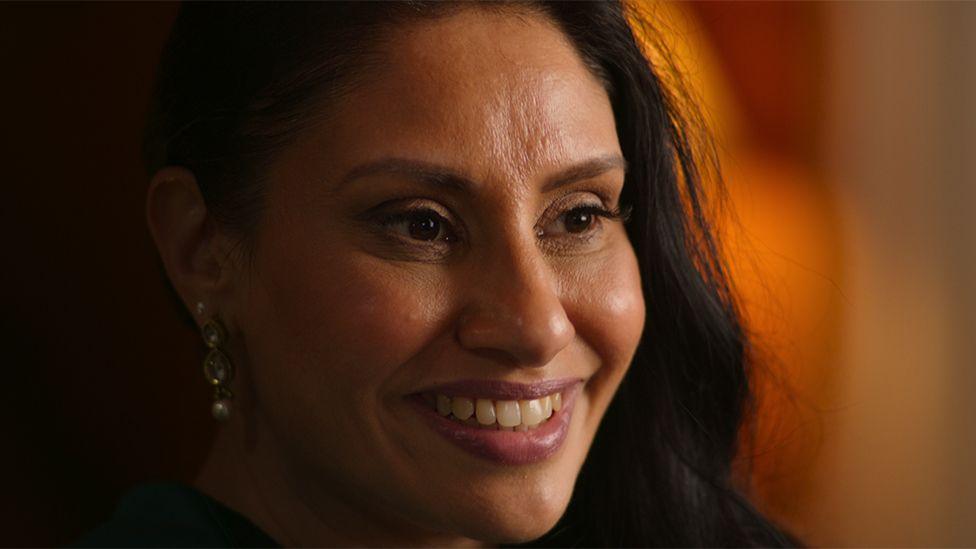I'm not stupid, I've chosen to speak, says catfish victim duped for nine years

Kirat Assi was catfished for nearly nine years
- Published
It all started with a friend request.
Kirat Assi thought she'd hit the jackpot when Bobby, a handsome cardiologist, got in touch with her in 2009.
He wasn't a total stranger. The pair were both from west London's Sikh community and had friends in common.
So, Kirat accepted, and her online chats developed into deeper conversations before blossoming into a full-on love story.
The two became more and more entangled in each other's lives but they never met, even after years of correspondence.
Bobby would provide increasingly outlandish excuses. He'd had a stroke. He'd been shot. He had entered witness protection.
The tall tales, though, were always backed up by someone close to Bobby - or so Kirat thought.
In truth, she was the victim of a wildly elaborate and traumatising catfishing scheme.
After nine years, when the excuses ran thin, Kirat finally came face-to-face with Bobby.
But she didn't recognise the person in front of her.
The person she'd been messaging was her female cousin, Simran, who had been the brains behind everything.
Looking back now, Kirat asks herself: "How could you have been so stupid?"
Kirat's shocking story was a hit for podcast maker Tortoise in 2021. You can listen to that on BBC Sounds here. Now, three years on, Netflix has recently released a documentary which features her recounting her experience.
She says that telling her story has prompted others to ask the same question: "How can somebody fall for that?"
It's also prompted abuse from some people online.
"For people who might still think I'm stupid. That's fine, you’re allowed your opinion," she tells BBC Asian Network News.
But Kirat says people shouldn't make assumptions - and countering these was partly what prompted her to tell her story.
"I'm not stupid, I'm not dumb. I'm the one that's chosen to speak.
"I'm the one that's put myself out in the firing line and I hope others will come forward," she says.
Which prompts another question: Why would someone who'd been duped in this way put themselves in the public eye?

The documentary hears from the "real Bobby"
'We have responsibilities towards our community'
Kirat, who's from a Punjabi background, says speaking out was important because she wanted to challenge stigmas in the South Asian community.
"We are so scared to open up about these issues," she says.
"Because of how a community will be seen by wider society, the victims in our communities keep suffering."
Kirat says her dad's reaction to her story is a good example of what she means.
"He doesn't want to know what happened," she says.
"Because to face up to what happened, and how horrific it was, it's going to be painful.
"I love my dad and I know my dad loves me," she says, adding: "It's a different set of values that he has been brought up with."
Kirat says she hasn't spoken directly to "the real Bobby" about what happened, and puts this down to the community’s reluctance to have difficult conversations.
She wonders if her experience would have been the same if she'd come from another background.
"I'd be making different decisions," she says.
"Because we have responsibilities towards our community. You have the pressure of family."

Kirat feels there is a fear in South Asian communities to talk about vulnerable issues
'I don't carry the victim mentality'
Despite some negative reactions to the re-tellings of Sweet Bobby, Kirat says she would rather deal with questions up-front.
"If you do see me, don't be scared to approach me," she says.
"And if you want to say something which might be controversial to me, it's OK.
"Let's have a discussion about it," she says.
When Kirat's asked if speaking to podcast or documentary producers has given her a sense of closure, she's less certain.
Simran rejected offers to be involved in the documentary, where she's played by an actress.
Kirat successfully brought civil action against her cousin, receiving compensation and an apology at the end of the case.
A statement from Simran included in the show says: "This matter involves events that began when she was a schoolgirl. She considers it a private matter and strongly objects to what she describes as numerous unfounded and damaging accusations."
Kirat says Simran hasn't faced any criminal charges, and wants her to be held accountable.
"I'm not OK with that person being out there," says Kirat.
There's another question that she's no closer to answering: Why?
Witcher TV star's gaming debut a chance for self-exploration
- Published16 October 2024
I lived online 24/7 but then my identity was stolen
- Published20 October 2023
My mission is to take Tamil music global, says Sid Sriram
- Published6 October 2024
Kirat doesn’t think she will ever truly find out what drove the campaign against her.
"I think I've long given up," she says.
"The extent to which that person went, you can't ever justify it.
"I can't understand why you didn't stop… what gave you pleasure from hearing somebody in pain."
But not having answers is not stopping her from moving forward with life, including dating again.
"I'm working really hard, harder than I should have to right now to rebuild my life and career," she says.
"I don't carry the victim mentality around with me. I don't want to be that person.
"I'm going to carry on working towards goals and dreams."
Sweet Bobby: My Catfish Nightmare is available to watch on Netflix.
